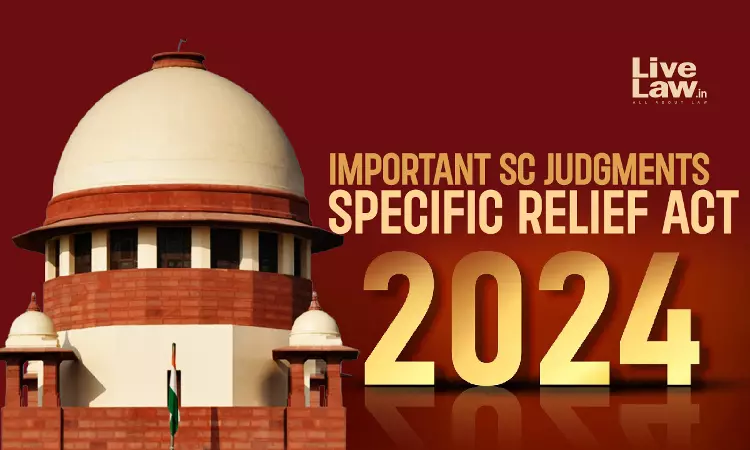Specific Relief Act: Important Judgments By Supreme Court In 2024
Yash Mittal
31 Dec 2024 2:38 PM IST

Next Story
31 Dec 2024 2:38 PM IST
As 2024 ends, LiveLaw presents a summary of significant Supreme Court judgments from the year related to the Specific Relief Act, 1963. Here are the key highlights:1. Suit For Declaration Of Title Without Seeking Recovery Of Possession Not Maintainable When Plaintiff Not In Possession: Supreme CourtCase Title: VASANTHA (DEAD) THR. LR v. RAJALAKSHMI @ RAJAM (DEAD) THR.LRs. Citation: 2024...
